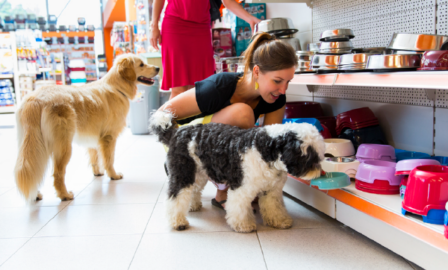Private Label Pet Food: An Expanding Market
The pet industry has been trending upwards for decades. With 66% of U.S. households owning a pet, and 75% of them having a cat or dog, the market is strong and substantial; and now private label pet food is expanding.
Over the past six months, 66% of pet owners said they have increased spending on their pet to help ease the transition of return-to-work initiatives and traveling. This shows how devoted owners are to their pets; they’ll do whatever is required to give them a wonderful life. As owners persistently endeavor to provide the best products for their pets, businesses see this as an expanding area of opportunity to convert and retain pet owners.
With it being the fifth highest selling CPG product in 2021, pet food is receiving a lot of attention from businesses and pet owners alike. Based on current sales for the category, and expected growth potential, an increasing number of private label pet food brands have entered the market. Consumers are influenced by many factors, but when deciding on pet food they focus on nutrition, pet preference, and price before purchasing.
Meeting Consumers’ Pet Food Needs
With inflation at a 40-year high, and grocery prices up 10.8% over the last year, private labels are receiving more attention from consumers and leaning into the opportunity. Customers don’t want to sacrifice quality, and with an expanding emphasis on fresh, organic options for their pets, private labels are becoming an easy choice with their evolution of offerings at affordable prices. For instance, Target’s brand Kindfull highlights their alternative protein offerings (i.e., pumpkin, turmeric, etc.) which pet owners are increasingly open to and looking for in pet food.
Today’s consumers are also conscious of impacts from ancillary items like packaging. One study shows 54% of consumers find it important for products to be in sustainable packaging and take it into consideration when making a purchasing decision. Chewy’s private label, Tylee, developed and patented a packaging technique that claims sustainability gains while also preserving the product quality. This demonstrates private labels can’t simply compete with lower prices but must also remain competitive and in-tune to customers’ holistic product needs.
Beyond expanding demand, the pet food industry is attractive because it provides continuous purchases from customers, and private labels are showing their growing strength. Behind Nestle Purina Petcare and Mars Petcare, the top private labels rank number three in aggregate sales of dry dog food in the U.S.
In addition to new companies entering the market, innovative and differentiated channels are becoming more prominent. Online, big box, grocery, and specialty stores are just a few ways consumers can find and purchase their preferred pet food. Online sales growth is showing significant potential with typically lower prices and improved convenience for consumers. However, the online sales potential doesn’t preclude in-store purchases from also growing as club stores, like Costco and Sam’s Club, show strong results.
Continued Market Growth and Increased Competition
With large organizations like Walmart, Chewy, PetSmart, Amazon, and Kroger competing with national brands, and consumers evolving preferences, the pet food industry has never been more competitive. Companies are spending capital and taking risks to enter the $50 billion pet food and treat market because of its steady expansion and projected growth. Unique branding opportunities, and the exclusivity associated with private brands, have sped customer recognition and created the opportunity to cross-sell other private label products during pet food purchases.
What’s Next: Private Label Pet Food
Also enticing is the loyalty many pet owners show once they find a food their pet enjoys. It can be a costly and time-intensive task to transition to an alternative food, which means a brand that builds its base is likely to see recurring purchases. In addition to the expected market growth and financial benefit, entering the private label pet food industry is an opportunity to differentiate and expand brand recognition.
Subscribe to Clarkston's Insights
Contributions from Addie Schmidt



